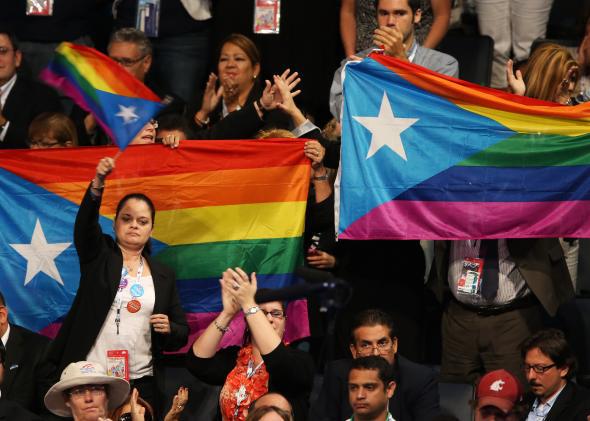When I moved to the South, from Boston to Knoxville, Tennessee, in the name of my wife’s education, there was a lot of practical information about being openly gay down here that I wish I’d been given in advance. Some of this information is now being collected in a single online resource by the Campaign for Southern Equality, a group committed to the admirable goal of advocating for change and reaching out to queer folks in the Southern states, particularly those in rural areas and small towns. With the launch of its LGBT rights toolkit, the CSE has gathered legal information, local resources, and official forms for everything from power of attorney and health care proxy to name and gender changes specific to each of the 12 states in the Southern region.
These resources were doubtless designed to tackle the most urgent concerns of LGBTQ Southerners, allowing them to navigate hostile legal systems and protect themselves and their loved ones in a part of the country where queers are most vulnerable. The report released by the CSE along with the toolkit stresses the disconnect between the high percentage of LGBT Americans currently living in the South, which they put at 35 percent of all lesbians, gays, and others in the United States, and the shockingly small percentage of total funds spent by national advocacy groups in this region, which they estimate at only 3-4 percent. This resource is a great first step, but clearly far more attention needs to be paid to the particular concerns and challenges faced by Southerners in our community.
It’s my hope that CSE, or some similar group, will next turn its attention to the pressing issues of social awkwardness that those of us living in the South face on a daily basis. First and foremost, we need a guide for graciously accepting the overly effusive support of Southern liberals who have rarely, if ever, encountered an actual queer in the wild. Is there a polite way to say, “Thank you for your support, but I don’t actually need a hug at the moment,” or is it necessary to the LGBTQ cause to grit one’s teeth and just accept the hug? When a friendly, nearsighted elderly Southern woman asks whether one is the sibling of one’s wife or husband, what is the gentlest way to say, “Actually, we’re one of those married gay couples the news has told you about.” And how on earth are Northern and Southern gays supposed to get along when the latter is embarrassed by the openness of the former, while the former are scornful of the fearful closetedness of the latter?
While minor social awkwardness is hardly on the same level as being denied access to my wife’s hospital bedside, it does seem to come up a lot more often. Now that we have the CSE toolkit to help with the latter, how about an instructional pamphlet to advise on the former? To any queer Southerner willing to create such a thing, I thank you kindly.
